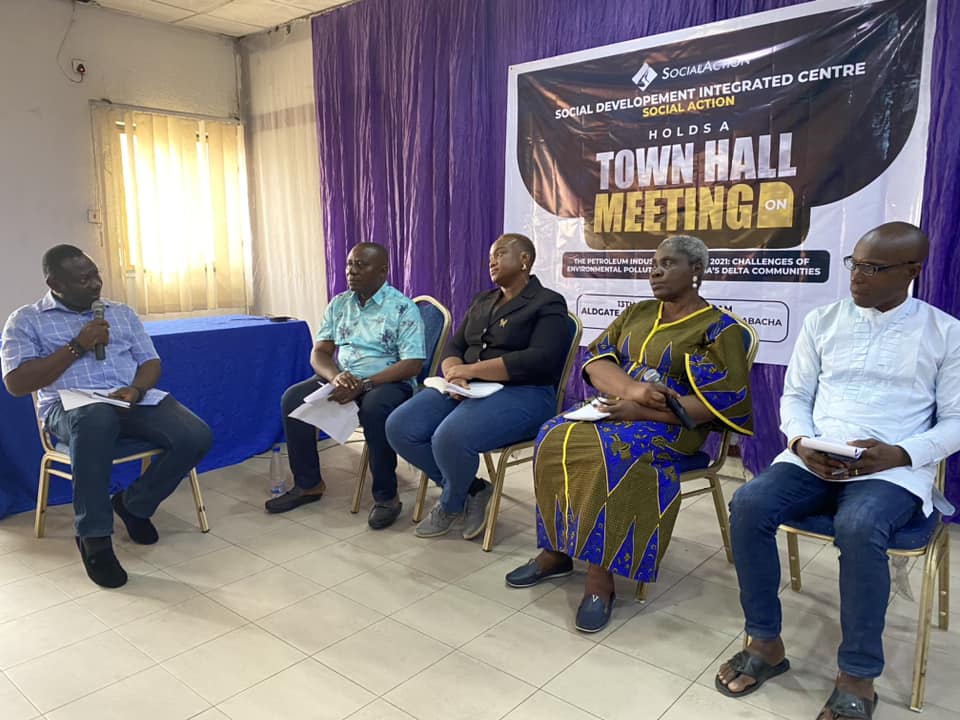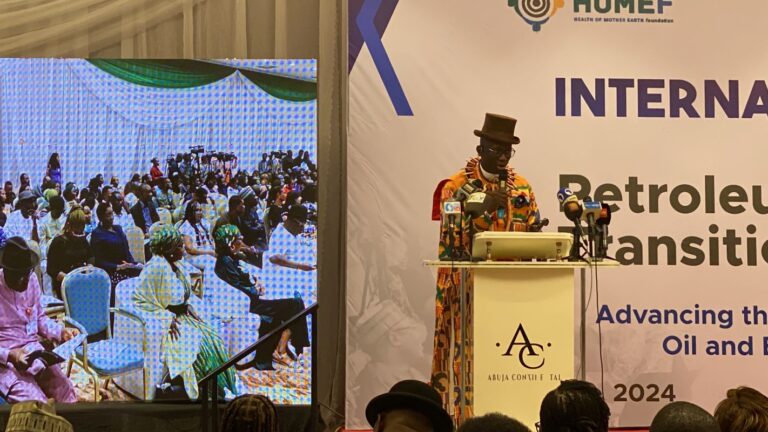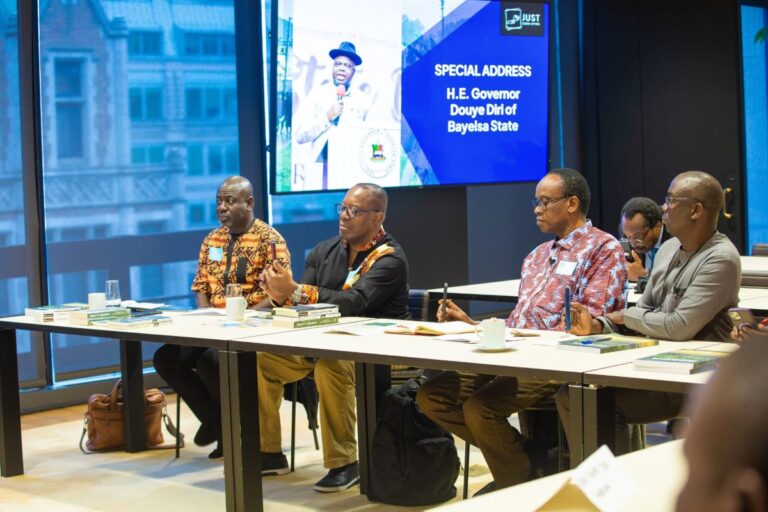Addressing the Shortcomings of the Petroleum Industry Act (PIA) in Addressing Communities’ Environmental Concerns
On February 13th, 2023, representatives from the Niger Delta communities, civil society organizations, government bodies, and media outlets congregated at the Aldgate Congress Hotel, Port Harcourt, to examine the state of implementation of the Petroleum Industries Act. Organized by Social Action, the town hall meeting, tagged “The Petroleum Industry Act [PIA] 2021: Challenges of Environmental Pollution in Nigeria’s Delta Communities”, aimed to identify approaches to dealing with the law’s shortcomings and its implementation process.
Social Action’s Communications Coordinator, Peter Mazzi, presented views collated by Social Action during previous research and community interactions: The Petroleum Industry Bill (PIB) passed by Nigeria’s National Assembly in 2021 is supposed to be a well-intended effort to reform Nigeria’s oil sector but unfortunately falls short in addressing the genuine concerns of the Niger Delta communities at the sites of extraction. These communities, living at the heart of Nigeria’s oil production, have endured environmental degradation, loss of livelihoods, and health risks since oil exploration began in 1958. The Niger Delta is a stark example of the adverse effects of oil and gas exploration on the environment and human health.
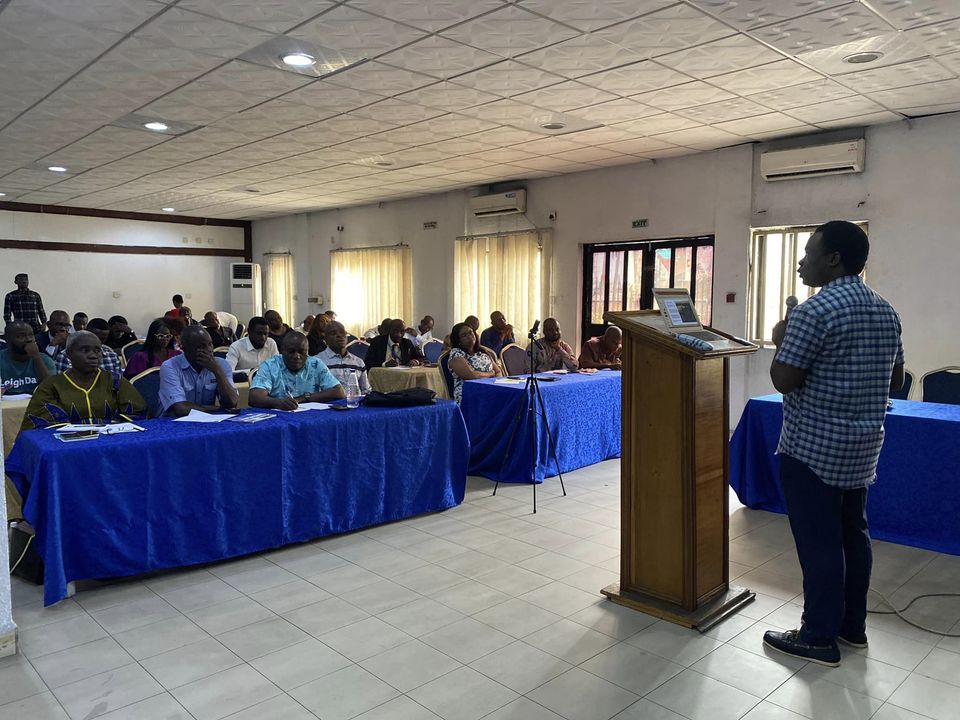
Regrettably, the PIA fails to prioritize environmental protection, pushing it to the periphery. The law empowers federal agencies, the Nigerian Upstream Regulatory Commission and the Nigerian Midstream and Downstream Petroleum Regulatory Authority; bodies focused on ensuring the profitability of the oil business, to also manage environmental protection. This is akin to putting the fox in charge of the hen house. For genuine environmental protection, separate, dedicated agencies should oversee enforcement and compliance.
Equally concerning is the PIA’s treatment of oil spills, a frequent and devastating occurrence in the Niger Delta. Astonishingly, the PIB remains silent on who is specifically responsible for addressing these spills. For transparency and accountability, the role of the National Oil Spill Detection and Response Agency (NOSDRA) should be reinforced, ensuring it has the authority to monitor, regulate, and penalize companies responsible for oil spills.
Gas flaring, a process that releases harmful greenhouse gases and carcinogens, is another major issue. The PIA’s provisions here are disappointing. While previous laws made gas flaring illegal and provided for penalties, the PIA offers nothing fundamentally new and drastic to deal with the crisis.
The PIA’s provisions for host communities also fall short. While a chapter is dedicated to fostering prosperity within these communities and creating a framework for their development, its proposed mechanisms are problematic. The law mandates the creation of a “Host Community Development Trust,” but the governance structure appears skewed. Oil companies have a significant say in their board of trustees, allowing them undue influence over funds meant for community development. Furthermore, the funding is inadequate. Considering the devastation these communities have endured, a minimum of 10% equity participation in oil and gas investments seems more equitable.
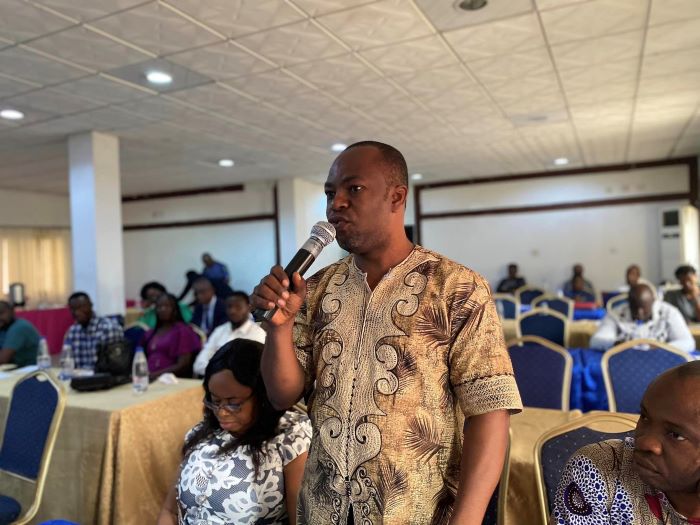
The PIA goes further to place an unreasonable burden on host communities. Astonishingly, it proposes that these communities be responsible for securing petroleum infrastructure. This means that the host communities would be financially liable if any vandalism or sabotage occurs. Such a provision seems unfair and a way for companies to escape responsibility.
Peter Mazzi also pointed out that the PIA’s provisions around access to justice are troubling. Those affected by the decisions or actions of regulatory bodies have a limited timeframe of just three months to seek legal redress. This timeframe is unrealistic and denies the often marginalized communities in the Niger Delta a fair chance to seek justice.
Ken Henshaw, Executive Director of We the People, delved deep into the historical and ongoing environmental challenges faced by the Niger Delta communities. Highlighting issues like gas flaring, divestment, and the non-inclusive nature of policy-making, Henshaw emphasized the flawed frameworks of the PIA. The history of oil exploration in the region, he argued, lacked the necessary consultations and consent from local communities, leading to degradation, pollution, and significant socio-economic impacts.
Throughout the day, participants voiced their concerns and frustrations, many echoing the sentiments of Henshaw. Questions revolved around the “decommissioning” of old oil wells, the potential for the PIA to instigate conflict, and the broader role of the Nigerian government in these challenges.
The panel discussion was moderated by Kentebe Ebiaridor of Oilwatch Africa and featured community voices like Celestine Akpobari and Barrister Okorite Yobo, further deepening the conversation on the PIA’s shortfalls.
By the end of this impactful gathering, several tangible action points emerged:
Review and Amend the PIA 2021: It’s clear that the Act has significant flaws that need to be addressed, with emphasis on a more inclusive approach.
Decommissioning Unused Oil Wells: There’s a pressing need for provisions mandating the safe decommissioning of inactive oil wells.
Community Empowerment: The communities of the Niger Delta need to come together to build a consensus on a feasible framework for the PIA and involve local experts in decision-making processes.
Educating and Sensitizing the Niger Delta communities: There’s an urgent need for targeted sensitization on the PIA provisions and exploration of alternative livelihoods. Only through understanding can the communities effectively demand better.
Elect Rightful Representatives: Community members should focus on electing lawmakers who genuinely understand and advocate for their concerns.
Ongoing Advocacy: To ensure continuous accountability, the communities should collaborate with citizen groups to frequently organize town hall meetings, issue press statements, and even stage protests.
In conclusion, while the PIA is a step towards reforming Nigeria’s petroleum sector, it requires significant revision to ensure it equitably serves the Niger Delta communities. They deserve legislation that genuinely protects their environment, supports their development, provides fair representation, and offers them real access to justice.
The message was clear: For a future where the Delta communities thrive alongside a robust oil industry, there needs to be a balance – one where policies are developed not for mere profit alone but for the sustainable development of the communities most affected by these operations. Only then can the true potential of the Niger Delta and Nigeria be realized.

